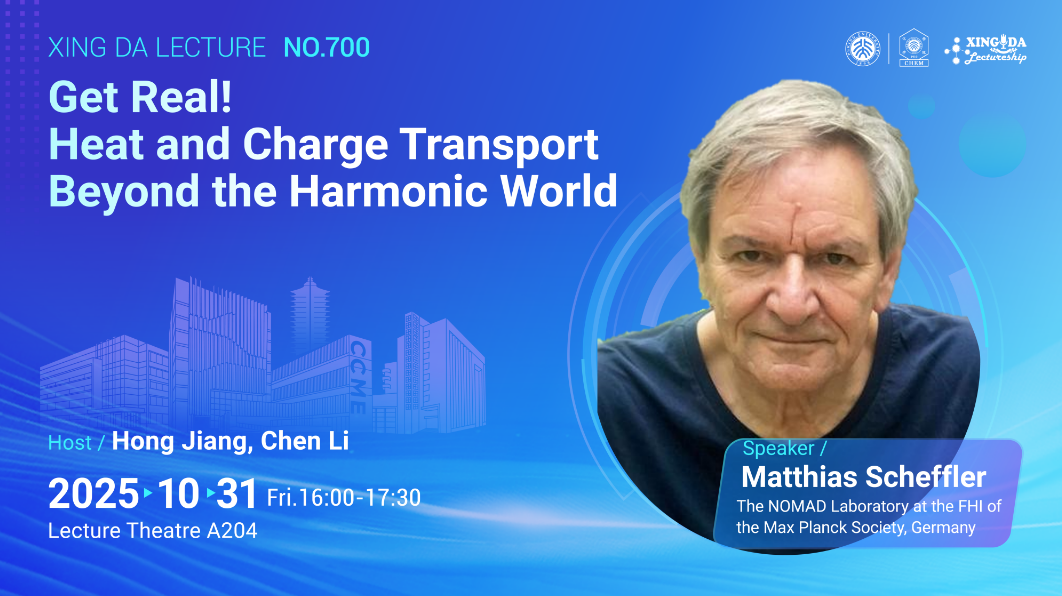
Abstract
How heat and electricity move through materials determines their performance — from thermal barrier coatings in jet engines to the efficiency of electronic devices and power systems. Predicting these transport properties from first principles (applying many-body quantum mechanics) is a major challenge. Most current theories assume that atoms vibrate harmonically, an approximation that collapses at high temperatures or in strongly anharmonic materials, where atomic motion becomes wild and nonlinear. In this talk I will introduce a nonperturbative, first-principles approach based on ab initio molecular dynamics simulations that naturally includes all anharmonic effects. This method enables accurate predictions of heat and charge transport in real materials — even under extreme, yet realistic, conditions where conventional theories fail.
Biography
Professor Matthias Scheffler, the founding Director of the Theory Department at the Fritz Haber Institute of the Max Planck Society in Germany and a member of the German National Academy of Sciences Leopoldina, is a scholar of global influence in condensed matter physics, physical chemistry, and related fields. He has long played a leading role in first-principles computational materials science and software development. His research spans electronic structure methods, heterogeneous catalysis, thermal transport, thermoelectric materials, inorganic/organic hybrid materials, biophysics, and materials big data analysis. He has led the development of the all-electron first-principles software package FHI-aims and NOMAD, one of the largest databases in computational materials science. Throughout his research career, he has published over 600 papers and achieved an h-index of 160. Professor Scheffler has received numerous prestigious international awards, including the Max Planck Research Award (2001), the Max Born Prize (2004), and the Ernst Mach Honorary Medal (2008), MBA Award of the Japan Society of Vacuum and Surface Science (2024), Zhongguancun Award for International Cooperation of the City of Beijing (2025).